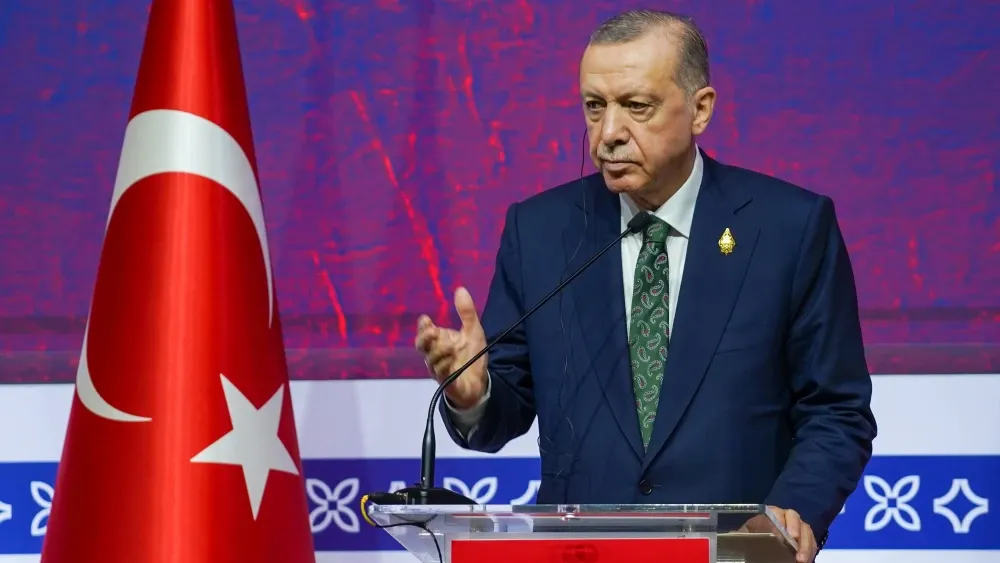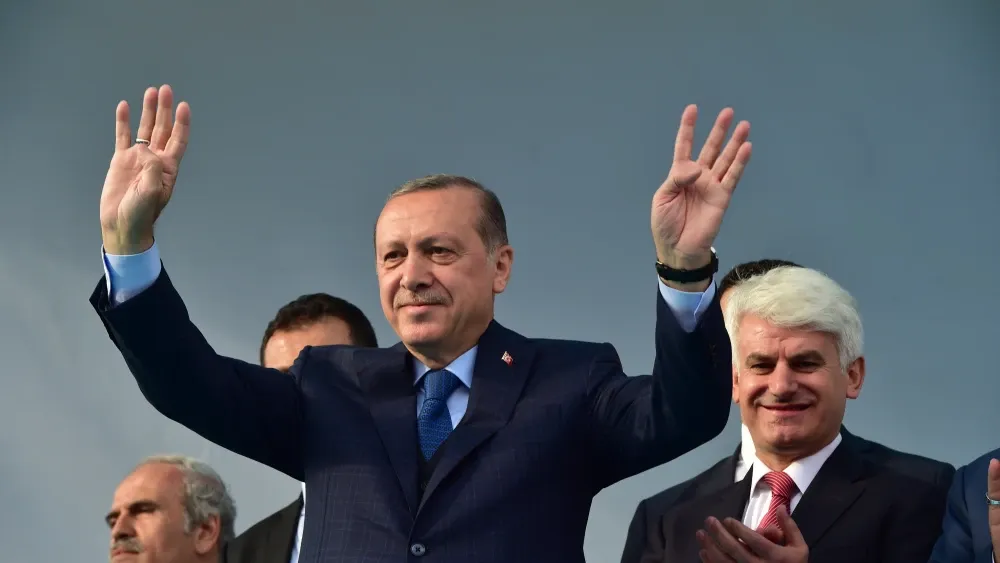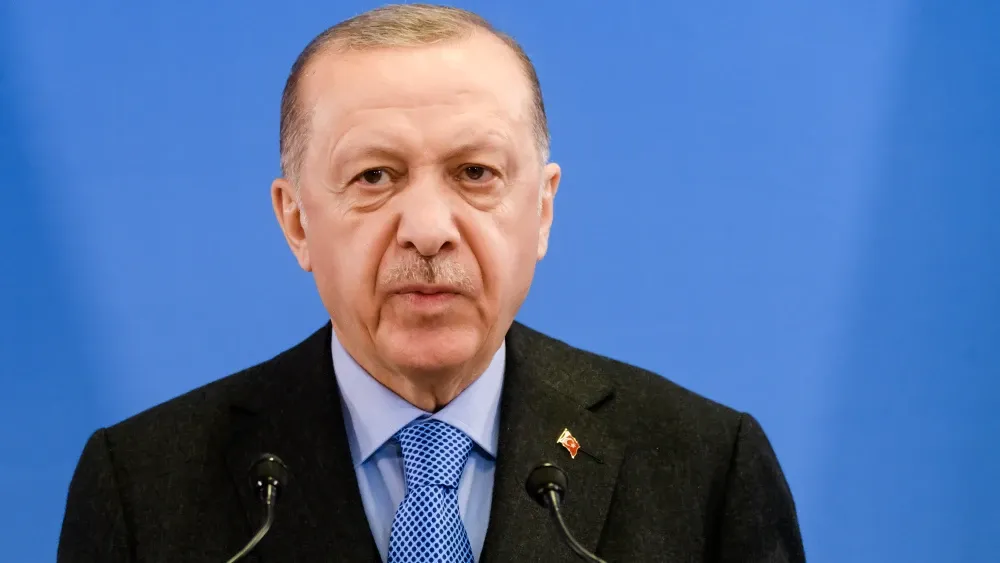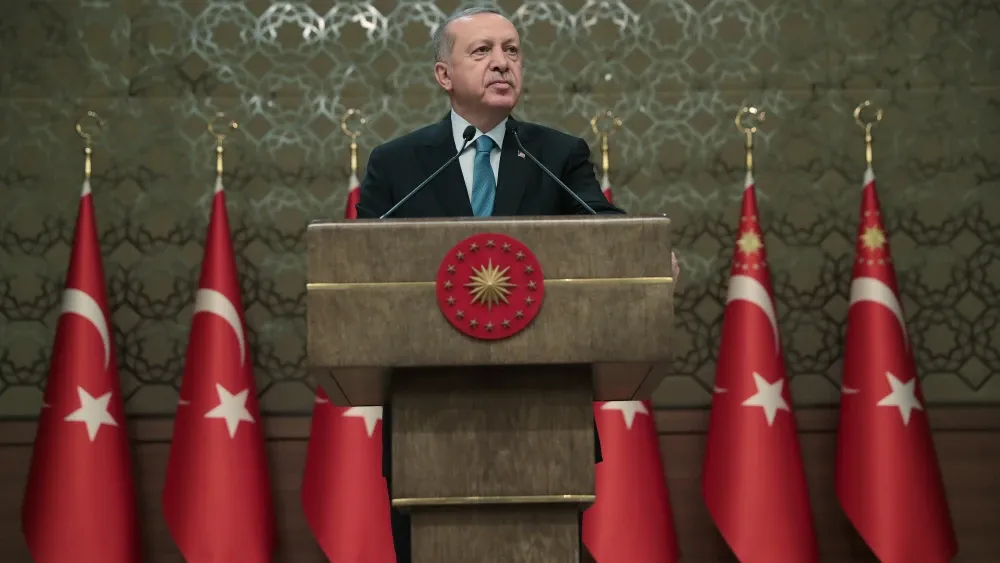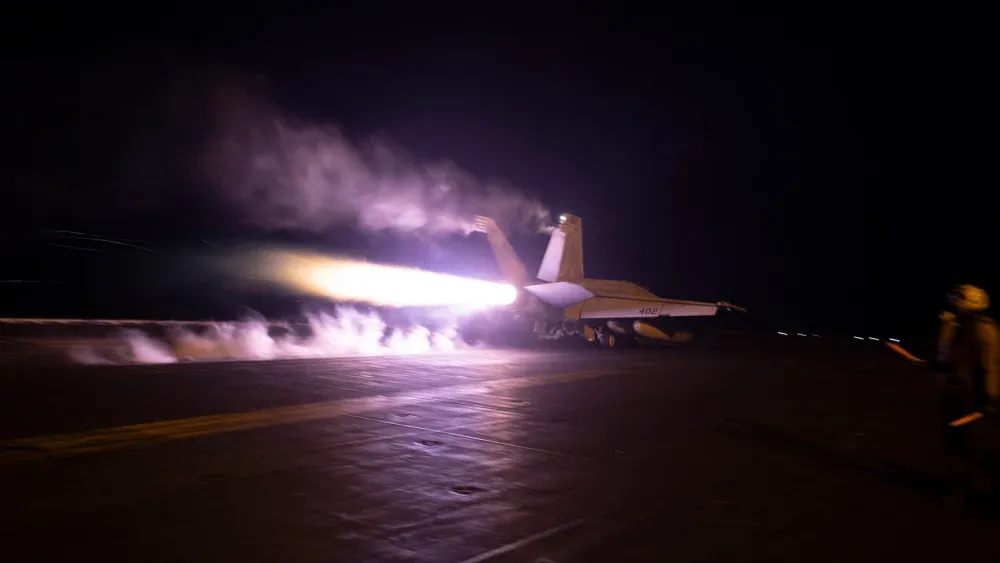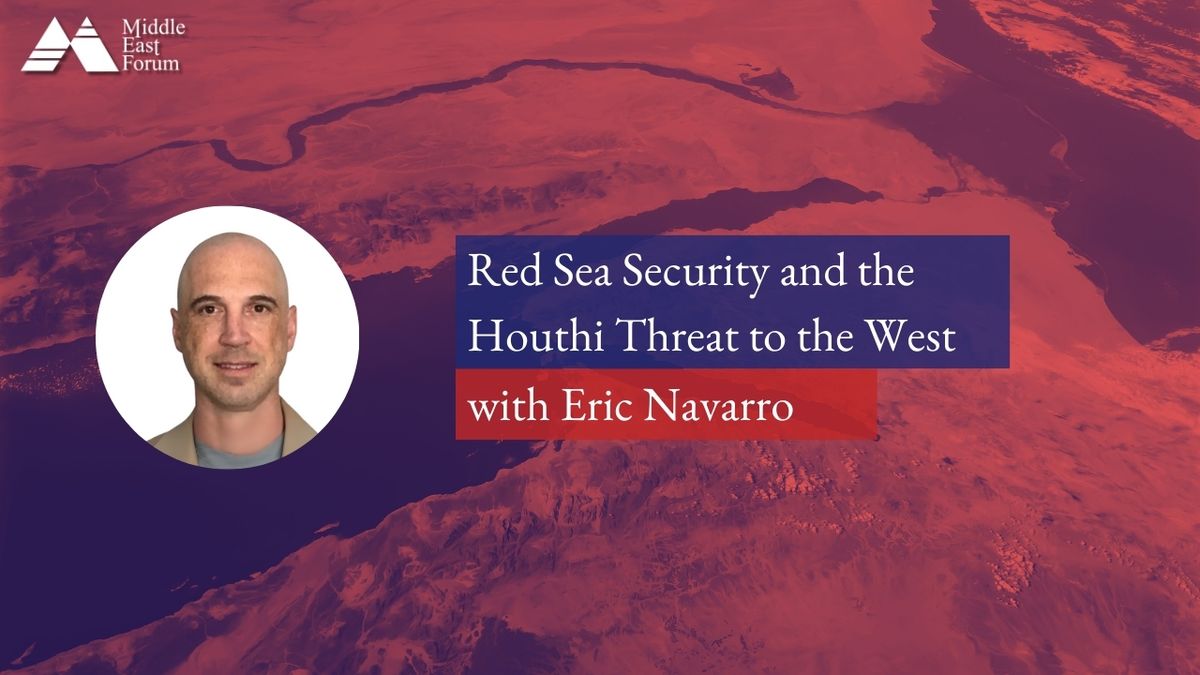| ||
 | ||
| Erdoğan Spells Trouble for the U.S., Its Allies, and the Turks: Is Change in the Wind? Plus, Striking Back at the Houthis By Winfield Myers ● Mar 27, 2025 Smart Brevity® count: 6.5 mins...1674 words Turkish President Erdoğan’s contempt for the U.S., Israel, and Western norms cannot be denied. He is bellicose toward NATO allies, dictatorial toward Turkey’s citizens, and expansionist in Syria and the region. How should the U.S. and others respond? We offer analyses by three seasoned observers. Further south in Yemen, President Trump is striking back at the Houthi terrorists who have heretofore acted with impunity to disrupt international shipping channels on behalf of Iran. Eric Navarro applauds this overdue reaction, while Jonathan Spyer cautions that the U.S. must take note of Russia’s behind-the-scenes alliance building lest it find itself outmaneuvered. | ||
ICYMI: Israel Insider with Ashley PerryWill Israel’s renewed operations in Gaza bring Hamas back to the negotiating table? Which of Israel's war goals is currently taking precedence – the return of hostages or the destruction of Hamas? Ashley Perry is an advisor to the Middle East Forum’s Israel office. He served as adviser to Israel's minister of foreign affairs and deputy prime minister in 2009-15, and has also worked with Israel's Ministers of Intelligence, Agriculture and Rural Development, Energy, Water and Infrastructure, Defense, Tourism, Internal Security, and Immigrant Absorption and as an advisor to The Negev Forum. Originally from the U.K., he moved to Israel in 2001. He holds a B.A. from University College London and an M.A. from Reichman University (IDC Herzliya). To watch the full podcast, click here. | ||
The U.S. Should Thwart Turkey’s Drive to Forge an Islamic-Leftist BlocTurkey is leveraging its military and ideological influence to reshape the Middle East, with ambitions rooted in neo-Ottomanism and a strategic partnership with Iran. Why it matters: Turkey's actions are not just about regional dominance but aim to counter Western-backed alliances and the liberal international order.
The big picture: Turkey's intensified military operations and strategic positioning against the PKK are part of a broader plan to form a new ideological bloc.
What's next: Without consistent Western support, the Kurds risk being absorbed into this Islamic-leftist framework, stifling their self-determination.
The stakes: If the West fails to act decisively, Turkey's new ideological paradigm could redefine the geopolitical landscape in unprecedented ways. To read the full article, click here. | ||
Arrest ErdoğanOn March 19, 2025, Turkish security forces arrested Istanbul Mayor Ekrem İmamoğlu on dubious charges of corruption and terrorism. Why it matters: This blatant political maneuver reveals Erdoğan's relentless drive to crush any opposition threatening his rule.
The big picture: Erdoğan's disdain for democratic norms is evident as he continues to flout international human rights rulings with impunity.
The stakes: European nations and international bodies must act decisively to hold Erdoğan accountable.
Europe’s thought bubble: It's time for Europe to stop indulging Erdoğan with diplomatic niceties and start demanding accountability.
To read the full article, click here. | ||
Campus Watch Seeks Writers for Paid Essays and ReportsCampus Watch, a Middle East Forum project critiquing Middle East studies in North American universities, is seeking writers to contribute paid essays and reports. Ideal candidates should have a strong grasp of Middle East studies, familiarity with key programs and professors, and be in agreement with the mission statements of Campus Watch and the Middle East Forum. Writing must be meticulous, rigorous, accurate, and timely, with submissions edited in collaboration with staff and published through third-party sites before appearing on the Campus Watch website, with payment provided upon publication. The project focuses on three main types of research: op-ed length features on Middle East studies topics (e.g., historiography, individual professors/programs, or responses to current events), reports on public lectures, panels, or conferences involving MES professors and experts, and in-depth analyses of the field. To apply, email a cover letter outlining your qualifications and interest, a resume, and writing samples (links to published works accepted) in PDF or Word format to Prosser@MEForum.org, with “Campus Watch Writers” in the subject line. For more information, click here. | ||
Regime Change Is Coming to TurkeyPresident Erdoğan's arrest of Istanbul Mayor Ekrem İmamoğlu should dispel any illusions about Turkey's democratic facade. Why it matters: Erdoğan's consolidation of power signals his intent to rule indefinitely, leaving Turkey's democracy in shambles.
The big picture: Washington, Brussels, and other international actors must recognize the systemic corruption and repression at the heart of Erdoğanism.
The stakes: Absent a South Africa- or Morocco-style process, there will be societal upheaval as Turks and Kurds seek revenge on their tormentors.
In context: Two decades of Erdoğanism has traumatized those within Turkey whom it has not corrupted. Peace requires justice. Both require truth. To read the full article, click here. | ||
Erdoğan’s Relentless Campaign Shapes Public Perception of the U.S., Israel as Top ThreatsA recent poll reveals the extent of damage inflicted on Turkish public perception by President Erdoğan's government, which has systematically fueled anti-U.S. and anti-Israel sentiment. Why it matters: These sentiments serve to consolidate Erdoğan's power, distract from domestic crises, and justify repressive policies.
The big picture: Erdoğan's rhetoric against the U.S. and Israel is echoed by government officials and amplified by state-controlled media.
The stakes: By creating external “enemies,” Erdoğan deflects blame from his government's economic mismanagement and suppresses opposition.
What it means: As long as Erdoğan's narrative dominates, hostility toward the U.S. and Israel will remain entrenched in Turkey, complicating diplomatic relations and regional stability. To read the full article, click here. | ||
In Its Attacks on Houthis, the United States Is Missing the Russian ConnectionU.S. President Trump's stern warning to Iran over Houthi attacks in the Red Sea marks a significant escalation, underscoring Trump’s determination to reassert American power in the region. Why it matters: The Houthis, emboldened as the last standing force in the Iran-led bloc, pose a formidable challenge.
The big picture: Unlike other Iran-backed entities, the Houthis remain undeterred, bolstered by strategic Russian ties.
The stakes: The U.S. must act decisively against this emerging axis of power that includes Russia and China, or risk emboldening adversaries.
Our thought bubble: As the situation intensifies, the U.S. must strategically recalibrate to address the Houthis' role. Moscow remains determined to counter the U.S in Europe and the Middle East. Hopefully, Washington will soon notice. To read the full article, click here. | ||
Eric Navarro on Red Sea Security and the Houthi Threat to the WestThe Iran-backed Ansar Allah (Houthis) recently renewed their threat to attack any Israeli ship sailing in the vicinity of Yemen. The organization’s ongoing campaign of aggression in the Red Sea/Gulf of Aden area severely disrupts supply chains and fuels regional instability. The Middle East Forum last week launched the Red Sea Security Initiative (RSSI) to advocate for and support a determined western strategy to counter Houthi aggression and protect global trade routes. The RSSI aims to mobilize U.S. policymakers, global shipping leaders, and security experts to forge a coordinated response. Eric Navarro, director of RSSI, will explain why decisive action is needed, what steps are being taken, and what’s at stake if the world fails to respond. What impact have Houthi attacks had on global trade? How can this threat be stopped? What must be done to restore stability in the Red Sea? Eric Navarro, director of the Red Sea Security Initiative, is a military officer, business leader, and national security strategist. A Lieutenant Colonel in the Marine Corps Reserves, Mr. Navarro served two combat tours in Iraq. He is the author of God Willing: My Wild Ride with the New Iraqi Army (Potomac, 2008), detailing his experience as one of the first embedded advisors to the post-2003 Iraqi Army. He is a frequent media contributor with articles and appearances focused on national security strategy and the use of American power in a contested geopolitical environment. Mr. Navarro has an MBA from NYU’s Stern School of Business and an M.S. in national security strategy from National War College. To watch the full podcast, click here. | ||
| The Middle East is ever-changing, never boring, and always full of surprises. Our goal is to reduce the element of surprise by keeping you in-the-know with analyses that turn complex issues into compelling reading. We’ll return soon. Sincerely, Winfield Myers | ||
| Was this edition useful? Your email will be recorded and shared with the sender | ||
| Powered by | ||
| ||


